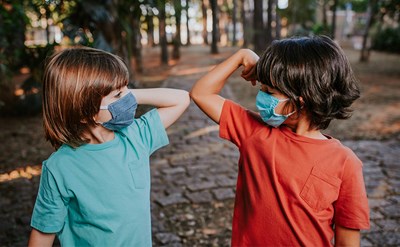Simple fever-related (or febrile) seizures are common among children under age five. Although these seizures can be frightening to parents and other caretakers, they are generally harmless.
Signs and Symptoms
- Simple febrile seizures generally occur in the first few hours of a high fever or rapid rise in body temperature.
- These seizures generally occur only once in a 24-hour period and usually last less than a minute but can last 15 minutes or longer.
- May cause loss of consciousness.
- May cause rhythmic muscle contractions.
- May cause child to clench teeth or bite cheek or tongue.
- Child may stare or become unresponsive.
- May cause face, arms, and legs to twitch, and arms or legs to jerk.
- Eyes may roll back.
- May cause difficulty breathing.
- May cause child to lose bladder or bowel control.
Advice to Parents
Parents should seek immediate medical attention for a child or infant experiencing a febrile seizure, even if the seizure does not appear life-threatening (e.g., child's breathing is not constricted). Although the seizure may end before medical helps arrives or before the child reaches the emergency department, it is important to have a physician rule out other causes for a first-time seizure, especially meningitis. While the child is experiencing a seizure and until help arrives, parents should:
- Protect the child from injury.
- Lay the child face-up on the floor. If the child vomits, turn on the left side to prevent inhaling vomit or mucus into the lungs.
- Do not place anything, including your fingers, in the child's mouth.
After a Seizure
- In the emergency department, a child who has had a seizure will be evaluated for serious diseases, such as pneumonia or meningitis. This may require diagnostic tests such as blood work, urinalysis, x-rays, or a lumbar puncture (spinal tap). Most children who experience a simple febrile seizure will not require admission to the hospital.
- Medicines generally are not given to prevent simple febrile seizures. In addition, medicines given for fevers, such as acetaminophen or ibuprofen, have not been shown to prevent febrile seizures, but are often recommended because they relieve body aches and fever.
- After a seizure, a child may be sleepy or experience memory loss, headache, or confusion.
- Febrile seizures can recur if the child has another fever.
 American College of Emergency Physicians
American College of Emergency Physicians







